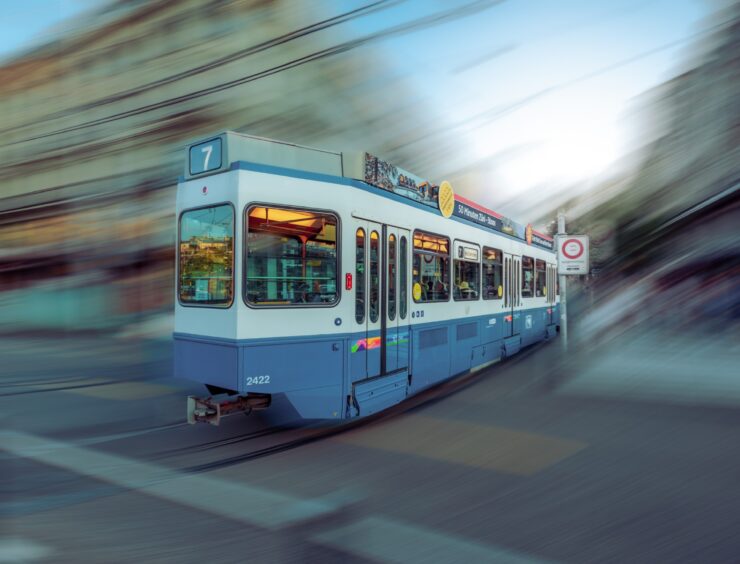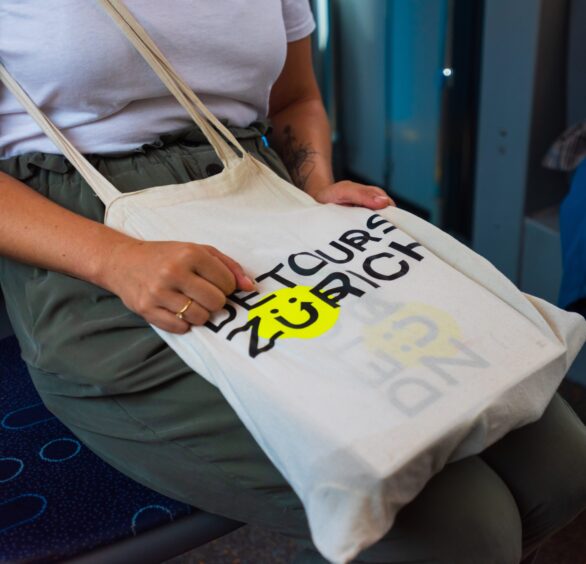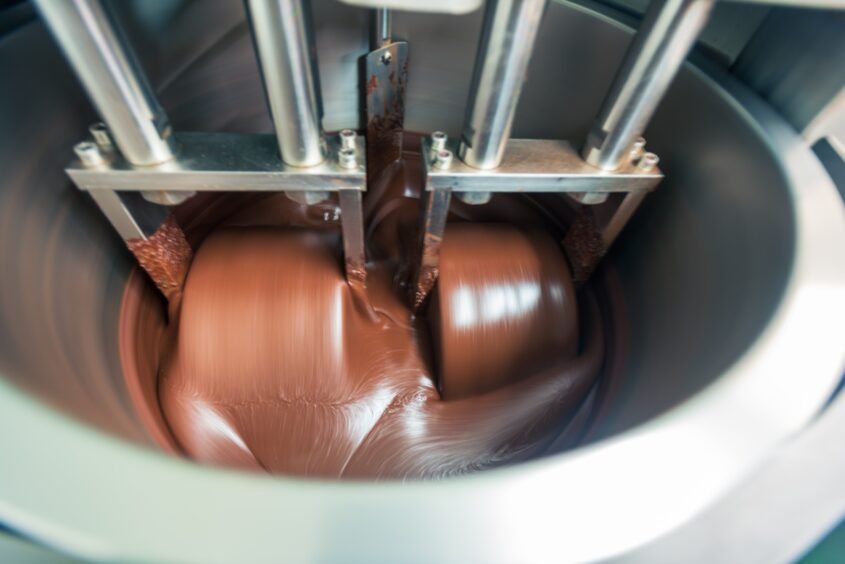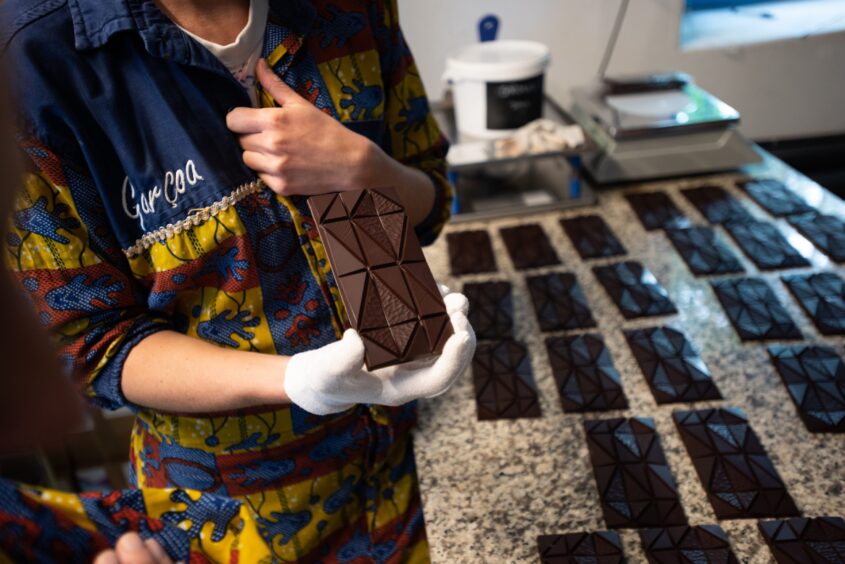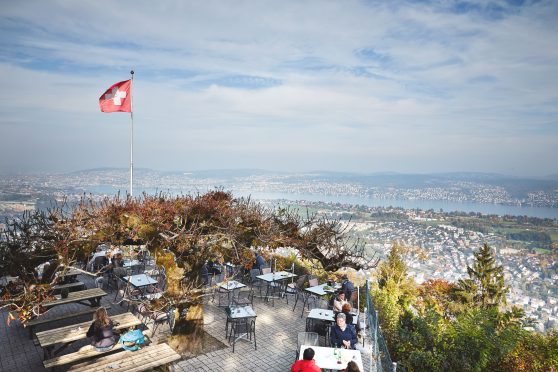
We hear it before we see it. A high-pitched whooping that quickly trails off before a splash swallows it down, replaced by the soft bubbling of air through water.
We are heading toward Flussbad Unterer Letten, Zurich’s oldest riverside swimming spot. A couple of kilometres upstream is Zurich’s centre, a modern metropolis reminiscent of Paris, with its electric hum of trains and trams juxtaposed with Gothic architecture and 21st-Century café culture.
From the Hauptbahnhof, the city’s main station, we walk north-west along the River Limmat, past the Swiss National Museum, a sprawling complex of ornate buildings that stretches out across a green parkland peninsula between two rivers.
Crossing the Limmat, we follow its rushing course as it empties out of Lake Zurich. The green water is so clear that it takes a moment to compute that the little fish we see swishing along the bottom are, in reality, more than a foot long and that the river is incredibly deep.
As we near Unterer Letten, the vibe turns from urban affluence to industrial hipster, with towering factories and graffitied skateparks. On a road bridge spanning the river, we spot the source of the whooping and watch as a young man does a backflip from the arched metal struts 30 feet above the water.
Just beyond, we finally see the boxed-off flussbad (literally river pool in English). The young man resurfaces, letting the fast-moving Limmat wash over him, taking him between the wooden boardwalks that line the pool.
Hundreds of Zürchers of all ages are here, laid out on the slats, sheltering from the sun in the pretty timber-framed changing area or on the grassy park that looks out to the river. It is one of more than a dozen outdoor bathing areas in Zurich.
Water, it is evident, is the lifeblood of the city and it is where the locals gather – to swim, to hang out, to see and be seen.
If the rivers and lake are the lifeblood, then chocolate is the beating heart. It was in the city in 1845 that Rudolf Sprüngli-Amman founded the first chocolate factory. Sprüngli, together with Rodolphe Lindt (whose conching machine helped turn cocoa into the ultra-smooth sweet we know and love) revolutionised the industry. Where they led others followed and many of the early pioneers are still recognisable today, like the aforementioned Lindt and Sprüngli, as well as Theodor Tobler of Toblerone fame.
We hop on a tram using our pre-paid Zurich Cards to head back into the city. From there we switch to a train that zips us down the west bank of Lake Zurich in under 20 minutes. The transport in Zurich is truly exceptional. In one day, we use trams, trains, buses, a cable car, funicular and even a ferry to get us around the city – and they are all covered by our Zurich Cards.
We arrive at Kilchberg, where we walk the short distance to the Lindt Home of Chocolate, a huge brick-façade factory and museum.
Standing in front of its towering fountain made of real melted chocolate, it is almost impossible not to think of the famous Willy Wonka factory.
Inside, we take the tour and learn about the history of chocolate production, from the farms in the “cocoa belt” around the equator to the Swiss mastery in manufacturing. It is worth pointing out that the tour includes all-you-can eat white, dark and milk chocolate directly from mini fountains – easily worth the ticket price alone.
While the Lindt tour is fascinating, it is at the smaller producers where Zurich’s spirit can be most keenly felt.
Like the UK’s micro-breweries or Norway’s craft cider revolution, Zurich’s chocolate industry has undergone something of a transformation, with tiny bean-to-bar producers not only taking on the sector’s big players but also proving there is a newer, greener and more equitable way.
Not far from the Lindt museum, we visit Taucherli, a small but radical producer dedicated to creating the finest chocolate while also ensuring the farmers, whether they are in Colombia, Nicaragua or Ghana, get paid a fair price and avoid harmful practices such as child labour.
It is no simple task but Lukas Bosshart, the firm’s owner, tells us the pay-off is the fine-quality chocolate they produce – indeed Taucherli cleans up at award ceremonies, with its Ghana 100% pure chocolate and 70% Mexico bar winning silver and bronze respectively at the prestigious Academy of Chocolate awards.
“When you put a lot of love and development into your chocolate, this is the reward you can get,” says Lukas, whose colourful T-shirt, chinos and cool glasses make him look more like a Silicon Valley tech savant than a stuffy businessman.
He shows us the process, from harvesting (much like coffee producers, Taucherli aims to use single-variety beans in its award-winning chocolate), roasting, mixing, heating, cooling and even hand packaging the final product.
The Swiss-German phrase for those who have an easy life literally translates to a “chocolate job”. And while Lukas might argue with the amount of work involved, he would hardly disagree that he has a “Schoggi-job”.
Next we join a Detours Zuerich Ethical Chocolate Tour, where founder Diana Fischer and Evelyn Knapwerth from the Good Chocolate Hub (an organisation advocating for transparent and fair chocolate production in Switzerland) lead us on a tasting workshop. There we try the preprocessed roasted cocoa nibs, which are wonderfully rich in flavour, with each bean variety having its own distinct taste. We also try the sweet juice made from cocoa plant pulp (tastes just like lychee) and learn of the producers trying to help farmers by creating a usable product of this normally discarded fruit.
From here we set off to another bean-to-bar producer, Garçoa, just north of the Taucherli factory.
In Garçoa’s tiny workshop, we meet Eva Schüler, the firm’s effortlessly cool head of production and product development. Eva shows us chocolate making in action and leaves us drooling at the dark, glossy bars laid out on the stainless-steel counter.
But this isn’t just a rinse-and-repeat industrial operation. Eva knows each cocoa farm intimately and explains the challenges of ethically sourcing and transporting the beans. Once all the hard work is done…the hard work begins again and each bar is hand pressed then bound in beautiful graphic-printed wrappers.
Like Charlie Bucket peeling back the wrapper to reveal a golden ticket, stripping back the layers of the Swiss chocolate industry has revealed a shining prize that highlights everything good about Zurich. A city where community and equality are the sweetest things.
5 things…
From outdoor swimming to incredible hotels and world-class dining experiences, Zurich has something for everyone. Here, we’ve broken down the best places to stay, eat, drink and enjoy in Zurich.
Stay
In a building that housed a cinema for more than a century, the Hotel Ruby Mimi is a chic Art Deco retreat that exudes hipster cool. Stay here and watch a movie in the hotel’s beautiful 1920s-style VIP cinema. Grab a cocktail from the excellent bar, relax and enjoy the film.
Eat and drink
Zurich is spoiled for choice when it comes to places to eat and drink. Our favourites were the Restaurant Neumarkt, a stylish foodie favourite in the city’s old town district, Haus Hiltl (a Guinness World Record holder as the oldest vegetarian restaurant in the world) and the Rooftop, which mixes amazing modern Asian cuisine with the best views of the city, especially at sunset.
Visit
The city’s old town district of Altstadt is a tightly packed maze of shops, restaurants and cafes. For those on a city break who want a bit of retail therapy, this is one place not to be missed. Afterwards, head to the Café & Conditorei 1842 for stunning bakes and cakes in the most Instagram-worthy of settings.
Swim
There are so many places in the Swiss city for an outdoor swim but the beautiful Seebad Utoquai is hard to top. Visit the ornate “Bathing Palace”, which has welcomed guests to Lake Zurich for more than 120 years, at sunset for the greatest outdoor swimming experience.
Hike
Get out of the city centre and visit Uetliberg, Zurich’s highest point. From here, not only are you guaranteed amazing views but there is also a superb walk to Felsenegg. The two-hour hike will take you along the Planet Trail, which puts the enormous distances of our solar system into context, with each metre of the path representing one million kilometres.

Enjoy the convenience of having The Sunday Post delivered as a digital ePaper straight to your smartphone, tablet or computer.
Subscribe for only £5.49 a month and enjoy all the benefits of the printed paper as a digital replica.
Subscribe